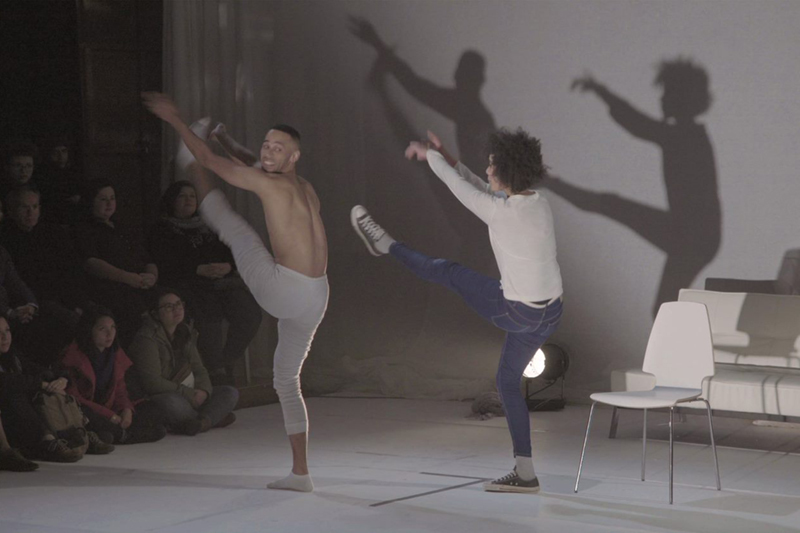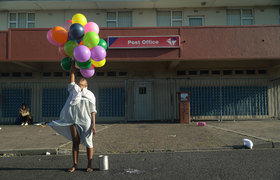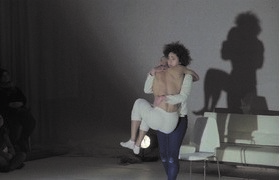Nadia Davids’ ‘What Remains’ wins the 2020 Olive Schreiner Prize for Drama
02 February 2022 | Story Supplied. Photo John Gutierrez. Read time 4 min.
University of Cape Town (UCT) Associate Professor Nadia Davids’ play What Remains has won the English Academy of Southern Africa Olive Schreiner Prize for Drama (2020).
The Olive Schreiner Prize for Drama forms part of a larger annual competition in creative writing of English expression, which includes prose and poetry. The award is named after the South African author and activist Olive Schreiner.
The convener of the adjudicators, Professor Owen Seda, said in the committee’s report:
“Here then is a new spell-binder in contemporary South African theatre. Nadia Davids’ What Remains fuses incident, character, text and physical theatre to present a profound metaphor of the country’s ongoing struggle to reconcile its troubled past with an imagined future. What we have here is a profound piece of creative writing that demonstrates an unequivocal and deliberate effort to tear the form book as it breaks new ground through extensive research, effort and a depth of thinking about issues which is second to none.”
A reckoning of past trauma
What Remains is a fusion of text, dance and movement to tell a story about the unexpected uncovering of a slave burial ground in Cape Town, loosely based on the events at Prestwich Place, the archaeological dig that follows and a city haunted by the memory of slavery. When the bones emerge from the ground, everyone in the city – slave descendants, archaeologists, citizens, property developers – is forced to reckon with a history sometimes remembered, sometimes forgotten.
The play is at its essence a story about slavery in the Cape, but it is more than that. It is also about memory and forgetting; about the relationship between the living and the dead, modernity and development, and honouring our ancestors and where we come from. It is a story that speaks to the zeitgeist of the student protests of 2015/16 and for a reckoning of our past trauma that cannot go un-remembered.
Deserving of accolades
Roshan Cader, the commissioning editor at Wits University Press, said that they have always wanted to work with Davids and to publish her plays. “Regrettably, other publishers often beat us to the post. Our luck turned when we approached her to publish What Remains and happily she granted us permission to license her play for the South African market.
“Winning the Olive Schreiner Prize for Drama is a wonderful testament to the strength of this play.”
“It is an important play for South African audiences to read, and we hope universities and schools around the country will make use of it. There is important history being told by our storytellers and dramatists that don’t often find [its] way into the school curriculum. Yet, as publishers we see something unique and daring in what the writer is doing and so we feel compelled to publish it and hope that it will be picked up by readers who will be similarly moved.”
Cader added: “Clearly we were right. Winning the Olive Schreiner Prize for Drama is a wonderful testament to the strength of this play that includes the choreography by Jay Pather.
“In the adept hands of two award-winning creatives, Davids and Pather, the story is elevated to convey the hauntology of South Africa’s past onto its present in a manner that is sublime, deeply mournful and quintessentially unique. The manner in which the text is published shows the transcendent nature of the creative process through interdisciplinary collaboration. This play and its genre-bending approach is richly deserving of the accolades, and we are proud to be the publisher of such a fine playscript.”
 This work is licensed under a Creative Commons Attribution-NoDerivatives 4.0 International License.
This work is licensed under a Creative Commons Attribution-NoDerivatives 4.0 International License.
Please view the republishing articles page for more information.










